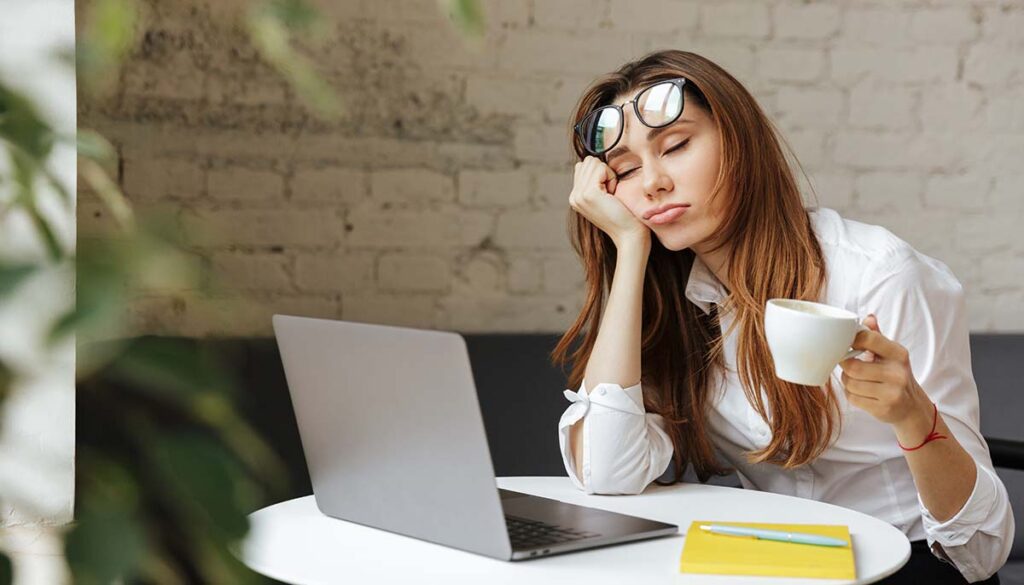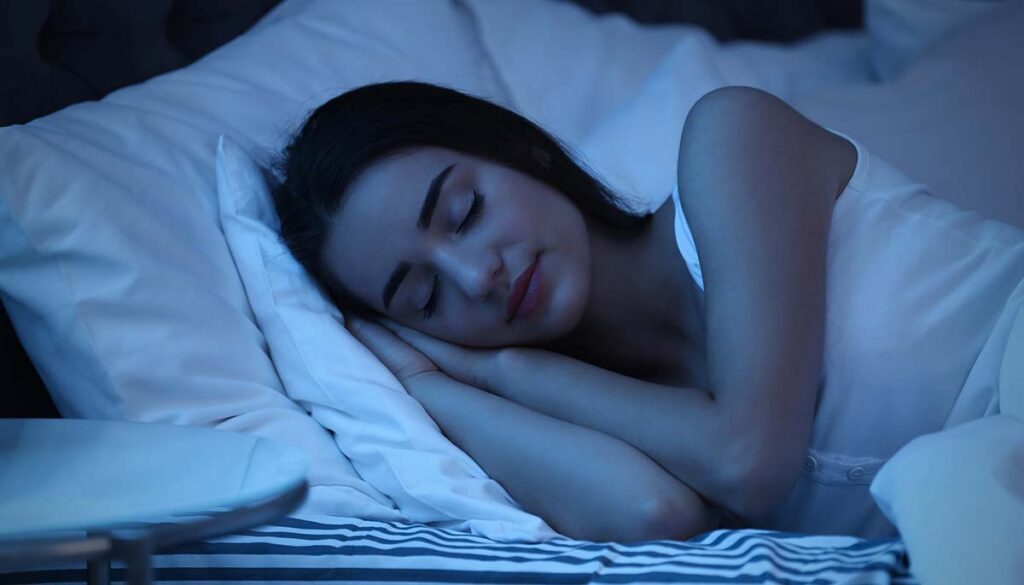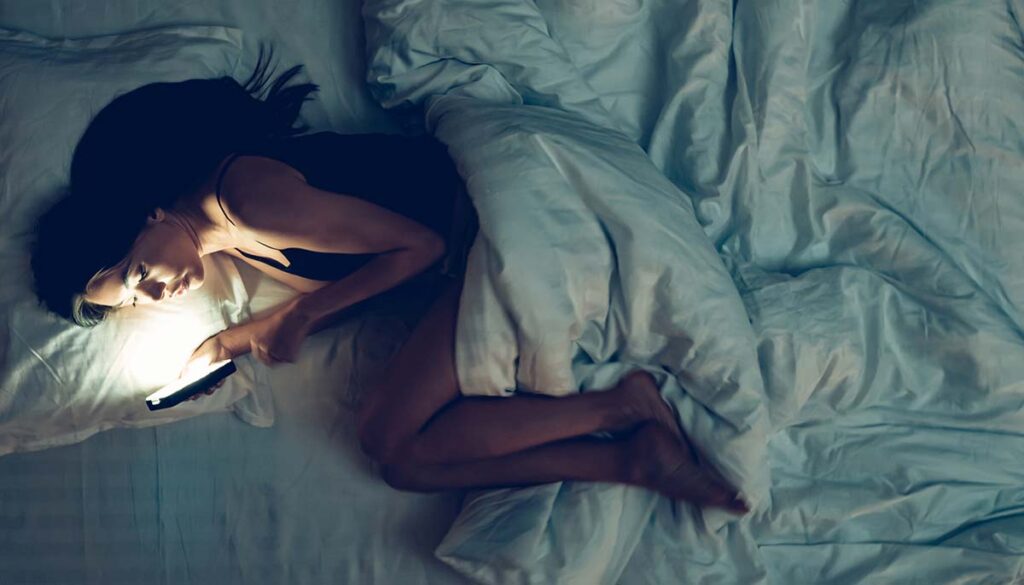Sometimes it seems like good sleep is hard to come by.
Whether it’s falling asleep initially or staying asleep all night long, I sometimes have a bit of difficulty drifting off into dreamland. I know that I need the rest so I can function at 100% during the day. And trust me when I say that I want to get those Zzzs.
It’s a weird sensation when you feel so tired, but you can’t go to sleep. It also usually leads to frustration, which then makes it even harder to fall asleep.

If any of these sound familiar, I have news for you: these are symptoms of a sleep disorder.
What Is a Sleep Disorder?
Okay, what is a sleep disorder, exactly? It’s a blanket term that includes insomnia, restless legs syndrome, narcolepsy, and sleep apnea, among others. Essentially, sleep disorders in general involve problems with the quality, timing, and amount of sleep. It can cause excessive daytime sleepiness or impairment, falling asleep at inappropriate times, difficulty concentrating or remembering things, or irritability and anxiousness.
You’re not alone with your sleepless nights. Sleep disorders are way more common than you probably think. All together, these disorders affect up to 70 million Americans each year. That’s a lot of missed beauty rest.
Related: Here’s Why You Feel Tired All the Time
The most common sleep disorder is insomnia. It can mean having a hard time falling asleep, or it can also mean having difficulty staying asleep through the night. Symptoms occur in at least a third of the population, affecting anywhere from 33% to 50% of adults. !0% to 15% of the adult population suffer chronic insomnia disorder that’s associated with distress or impairment. It’s a long-term pattern of sleep troubles that makes it difficult to function during the day.

There are some serious health complications associated with not getting enough sleep. After a while, a lack of quality sleep can contribute to diabetes, high blood pressure, heart disease, stroke, weight gain and obesity, and mood disorders. It also puts you at a higher risk for injuries, falls, and driving accidents.
Clearly, it’s in your best interest to get adequate sleep, but what do you do when you just can’t seem to fall asleep?
What Is Melatonin, and What Does It Do?
I have seen a lot of hype in recent years about taking melatonin supplements. Because melatonin is a natural hormone produced in the body, it seems like a safe way to get extra Zzzs, right? Let’s go over what melatonin supplements are and how they compare to the melatonin coming from your brain.
Melatonin is sometimes called the sleep hormone. It plays a role in managing your sleep-wake cycle. This natural hormone is produced by the pineal gland in the brain and released into the bloodstream. Evening darkness is what prompts the production of melatonin, and light causes the production to stop. By design, this synchronizes the sleep-wake cycle with night and day.
Melatonin doesn’t actually make you sleep, but it does promote sleepiness. It helps transition you into a good snooze. And while melatonin isn’t essential for sleeping, you do sleep better when you have the highest levels of the hormone in your body.
Melatonin supplements aren’t exactly the same. While some melatonin dietary supplements can be made from animals or microorganisms, they are most often made synthetically. So the real question here is whether melatonin supplements can help us sleep better.
So, do those supplements help us sleep better? Can they really promote better sleep and prevent insomnia?
The answer might not be so straightforward.
Will Melatonin Supplements Put You to Sleep?
It’s not surprising to find that tons of people take melatonin supplements in hopes that they will address insomnia.
These supplements are absolutely marketed as a way to fall asleep faster and stay asleep longer. And if you’re dealing with lots of sleepless nights, you’re probably ready to try just about anything to help fix the problem. A supplement that will send you to dreamland quickly, without the risk of dependency? It sounds like a great idea.

It’s true that you are unlikely to become dependent on melatonin supplements, and they won’t give you as much of a groggy, hungover feeling the next morning. These are some of the biggest problems with sleep medications.
Whether they actually help you achieve better sleep is another story.
As I already mentioned, naturally occurring melatonin from your pineal gland doesn’t actually induce sleep. It promotes sleepiness. This is an important distinction to pay attention to when looking for something to help with symptoms of sleep disorders. It’s the kind of distinction that explains why melatonin supplements have a limited impact on sleep.
Sorry, y’all. Melatonin supplements aren’t all they claim to be.
The Details About Melatonin Supplements
Now, I’m not telling you that you can’t try melatonin supplements, but I do think it’s important to know all the details before jumping in.
For starters, melatonin supplements are sold as dietary supplements. Dietary supplements are regulated by the FDA but under a different set of regulations than medications. While dietary supplements can contain ingredients with strong effects, they’re being regulated as food instead of drugs.
Studies show that melatonin supplements can improve sleep in certain cases, but it isn’t the catch-all solution that marketing claims would lead you to believe. The results are mixed, and scientific evidence just isn’t there. It’s also worth noting that while these supplements might help aid initial sleepiness, it hasn’t been proven to keep you asleep through the night.
Melatonin supplements may help certain conditions, such as jet lag and delayed sleep-wake phase disorder. It seems promising for adults age 65 and older, too, since we produce less melatonin as we age. But when it comes to good ol’ chronic insomnia, it’s not nearly as effective as cognitive behavioral therapy (CBT).
There also haven’t been any large-scale, long-term studies to prove that melatonin supplements are safe to take for more than a couple of months.
Proven Ways to Help Yourself Get to Sleep
If you’re having a difficult time falling asleep on a regular basis, there are other options to try first. It’s time to develop better sleep hygiene practices!
There are common habits and behaviors that prevent your body from producing enough melatonin. How many of these are you guilty of?
- Screentime before bed
- Drinking caffeine later in the day
- Keeping an irregular sleep schedule
- Alcohol consumption before bed
- Napping in the afternoon
- Eating too close to bedtime
- Too much light in the bedroom
While these behaviors can have a massive effect on your sleep quality, they are also pretty easy to fix. Adding the occasional melatonin supplement as part of the broader picture may help some people, but it’s not as effective as the steps outlined below:
The first step is to ban any and all screens at least thirty minutes before bed. But really, the more time you can put between screentime and bedtime, the better. Yes, this includes your phone! While you’re at it, dim the lights too. Reducing the amount of light will help cue your body to produce melatonin.

Alcohol might make you drowsy or relaxed initially, but it actually ruins your sleep after that. It can reduce the amount of REM sleep you get. In order to get the sleep you need, stop drinking alcoholic beverages at least four hours before bed. This gives your body plenty of time to metabolize the alcohol and get it out of your system.
Related: The Rise of the Mocktail: Unique No-Alcohol Drink Options to Try
Caffeine disrupting sleep is a no-brainer, so I don’t even need to explain that one. But it’s suggested that you ditch all caffeinated beverages at least six hours before bed.
When it comes to food, it’s best to wait at least three hours after eating to go to bed. It gives your body time to digest food. It will help you sleep better, and you’ll have less of a risk of waking up with indigestion, upset stomach, or acid reflux.
Your bedroom is an important key here, too. You want your bedroom to be relaxing and kept at a comfortable, cool temperature. Keep it quiet, although white noise is fine (and may even help you sleep better). Plus, you want it to be dark! If light stops melatonin production because it makes your brain think it’s daytime, it will also keep you from sleeping soundly.

One of the best ways to boost your sleep hygiene is to stick with a regular sleep schedule. This means going to bed and waking up in the morning at the same time each day. Yep, that means getting up early, even on the weekends. It also means not taking naps later in the day – even if you’re feeling fatigued. You won’t have enough time to get sleepy before bedtime.
Related: Realistic Ways to Become a Morning Person Once and for All













